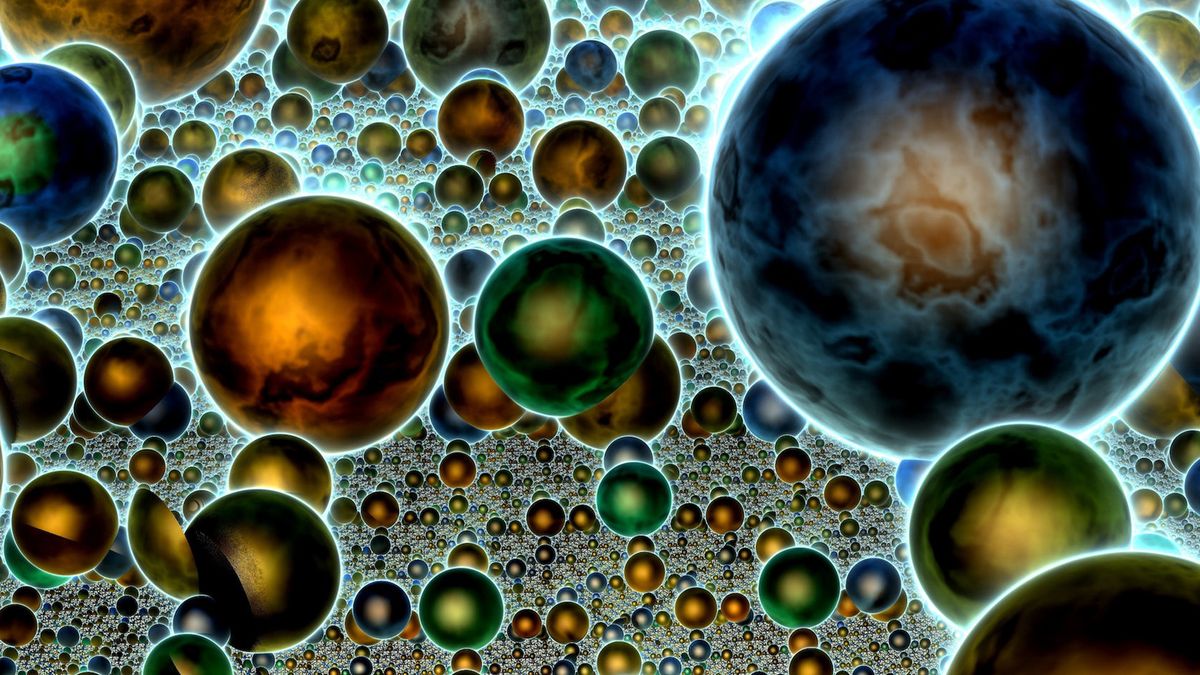Introduction:
Cosmic inflation is a compelling argument in cosmology that proposes a period of rapid and exponential expansion during the early universe. This theory, introduced in the 1980s, has reshaped our understanding of the cosmos. Let's explore the argument for cosmic inflation and its implications.
The Flatness Problem:
One argument for cosmic inflation arises from the flatness problem. According to the laws of general relativity, the geometry of the universe is determined by its density. A flat universe (Euclidean geometry) is one where parallel lines never meet, like a sheet of paper. The universe appears to be very close to flat, but it should naturally curve due to its density. Cosmic inflation provides a solution.
Cosmic Microwave Background (CMB) Radiation:
Observations of the CMB radiation, which is the afterglow of the Big Bang, offer support for cosmic inflation. Tiny temperature fluctuations in the CMB match the predictions of inflationary models. These fluctuations are crucial for the formation of structures like galaxies in our universe.
Horizon Problem:
The universe's large-scale structure is remarkably uniform. Yet, regions of the cosmos separated by vast distances shouldn't have had time to communicate and reach a uniform temperature. Cosmic inflation suggests that these regions were once much closer together and thus had the opportunity to equilibrate thermally.
Structure Formation:
Cosmic inflation provides a mechanism for the formation of cosmic structures. Quantum fluctuations during the inflationary phase could have been stretched to cosmic scales, creating the seeds for galaxies and galaxy clusters. This idea beautifully aligns with our observations of the large-scale structure of the universe.
- What was the trigger for cosmic inflation?
- Are there variations in the inflationary process across different regions of the universe?
- What lies beyond cosmic inflation in the early universe's history?
- How does cosmic inflation relate to other cosmological mysteries like dark matter and dark energy?
Cosmic inflation offers a compelling framework to explain several puzzling aspects of our universe. While it raises new questions, it also exemplifies the beauty of scientific inquiry, where ideas like inflation expand our cosmic horizons and invite us to explore the universe's hidden secrets.
Cosmic inflation is a compelling argument in cosmology that proposes a period of rapid and exponential expansion during the early universe. This theory, introduced in the 1980s, has reshaped our understanding of the cosmos. Let's explore the argument for cosmic inflation and its implications.
The Flatness Problem:
One argument for cosmic inflation arises from the flatness problem. According to the laws of general relativity, the geometry of the universe is determined by its density. A flat universe (Euclidean geometry) is one where parallel lines never meet, like a sheet of paper. The universe appears to be very close to flat, but it should naturally curve due to its density. Cosmic inflation provides a solution.
Cosmic Microwave Background (CMB) Radiation:
Observations of the CMB radiation, which is the afterglow of the Big Bang, offer support for cosmic inflation. Tiny temperature fluctuations in the CMB match the predictions of inflationary models. These fluctuations are crucial for the formation of structures like galaxies in our universe.
Horizon Problem:
The universe's large-scale structure is remarkably uniform. Yet, regions of the cosmos separated by vast distances shouldn't have had time to communicate and reach a uniform temperature. Cosmic inflation suggests that these regions were once much closer together and thus had the opportunity to equilibrate thermally.
Structure Formation:
Cosmic inflation provides a mechanism for the formation of cosmic structures. Quantum fluctuations during the inflationary phase could have been stretched to cosmic scales, creating the seeds for galaxies and galaxy clusters. This idea beautifully aligns with our observations of the large-scale structure of the universe.
- What was the trigger for cosmic inflation?
- Are there variations in the inflationary process across different regions of the universe?
- What lies beyond cosmic inflation in the early universe's history?
- How does cosmic inflation relate to other cosmological mysteries like dark matter and dark energy?
Cosmic inflation offers a compelling framework to explain several puzzling aspects of our universe. While it raises new questions, it also exemplifies the beauty of scientific inquiry, where ideas like inflation expand our cosmic horizons and invite us to explore the universe's hidden secrets.




